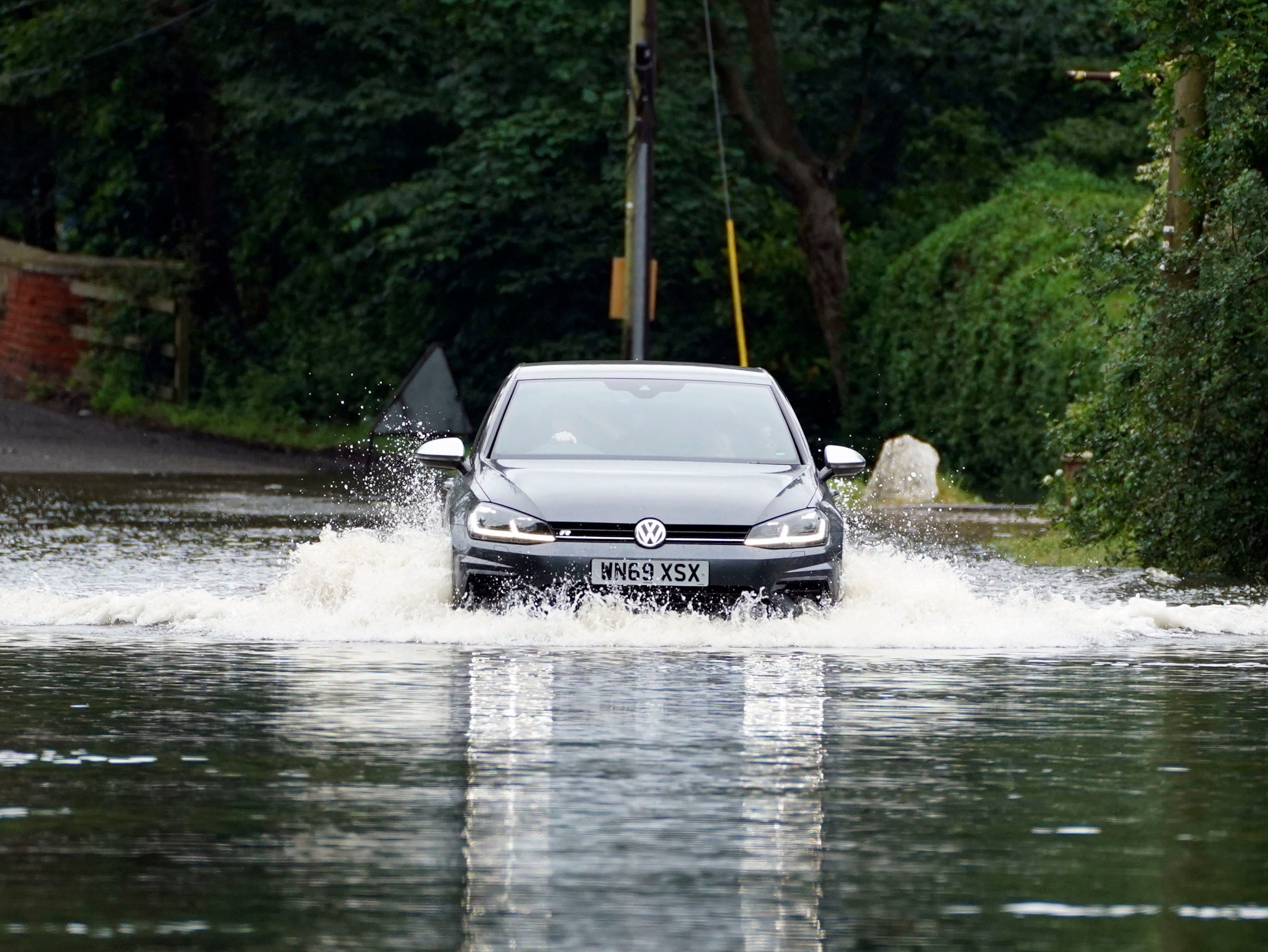Met Office climate model predicts more extreme weather events in the future
Global warming will increase the likelihood of flash-flooding events three-fold in some parts of the UK, the study found

Your support helps us to tell the story
From reproductive rights to climate change to Big Tech, The Independent is on the ground when the story is developing. Whether it's investigating the financials of Elon Musk's pro-Trump PAC or producing our latest documentary, 'The A Word', which shines a light on the American women fighting for reproductive rights, we know how important it is to parse out the facts from the messaging.
At such a critical moment in US history, we need reporters on the ground. Your donation allows us to keep sending journalists to speak to both sides of the story.
The Independent is trusted by Americans across the entire political spectrum. And unlike many other quality news outlets, we choose not to lock Americans out of our reporting and analysis with paywalls. We believe quality journalism should be available to everyone, paid for by those who can afford it.
Your support makes all the difference.A new high-resolution climate model has found that future extreme weather could be more severe and frequent than previously thought.
The new study by the Met Office and Newcastle University used climate projection modelling to investigate recent flood events across the world and predict expected rainfall patterns in the future.
Calculations revealed that a high emissions scenario of around 3C warming would leave Glasgow 3.5 times more likely to experience days of 30mm of rain or more per hour by the 2070s compared with the 1990s. In London, 30mm of rain per hour could be 2.5 times more likely. 30mm of rain in one hour is a threshold that is typically used to trigger flash flood warnings. These results suggest a big increase in the frequency of flash flood-producing rainfall events.
The research findings are revealed as world leaders reach the end of the Cop26 summit in Glasgow where urgent efforts to tackle climate change are being discussed.
Met Office climate scientist, Professor Lizzie Kendon, said: “We’re seeing that extreme rainfall events are being made both more frequent and more intense as a consequence of human induced climate change. Recent flooding events around the world show the devastation that intense rainfall can cause. By reducing our greenhouse gas emissions, the worst impacts can be avoided, but organisations and individuals need to be resilient to the changes in our weather that we’re already committed to”.
Last summer devastating floods hit London, central Europe and China. In the central Europe event, some parts of western Europe, including Berlin, received up to two months worth of rainfall in two days as over 120 died in the region as a result of the extreme weather.
Science fellow in climate Attribution at the Met Office Hadley Centre, Professor Peter Stott, said: “Climate change is no longer just an issue about the future. With the atmosphere having already warmed by around 1C it can hold roughly 7 per cent more moisture than it would have in the pre-industrial period, leading to more extreme rainfall events. As well as the chances of more extreme rainfall in the future we’re seeing the influence of climate change on the weather we’re experiencing now.”
Extreme weather events are nothing new, but the frequency with which they are occurring is changing, the Met Office said. For the UK, five of the 10 wettest years on record have happened since 2000, and the flooding in London in July 2021 is illustrative of the type of event we expect to increasingly see in future.
Join our commenting forum
Join thought-provoking conversations, follow other Independent readers and see their replies
Comments